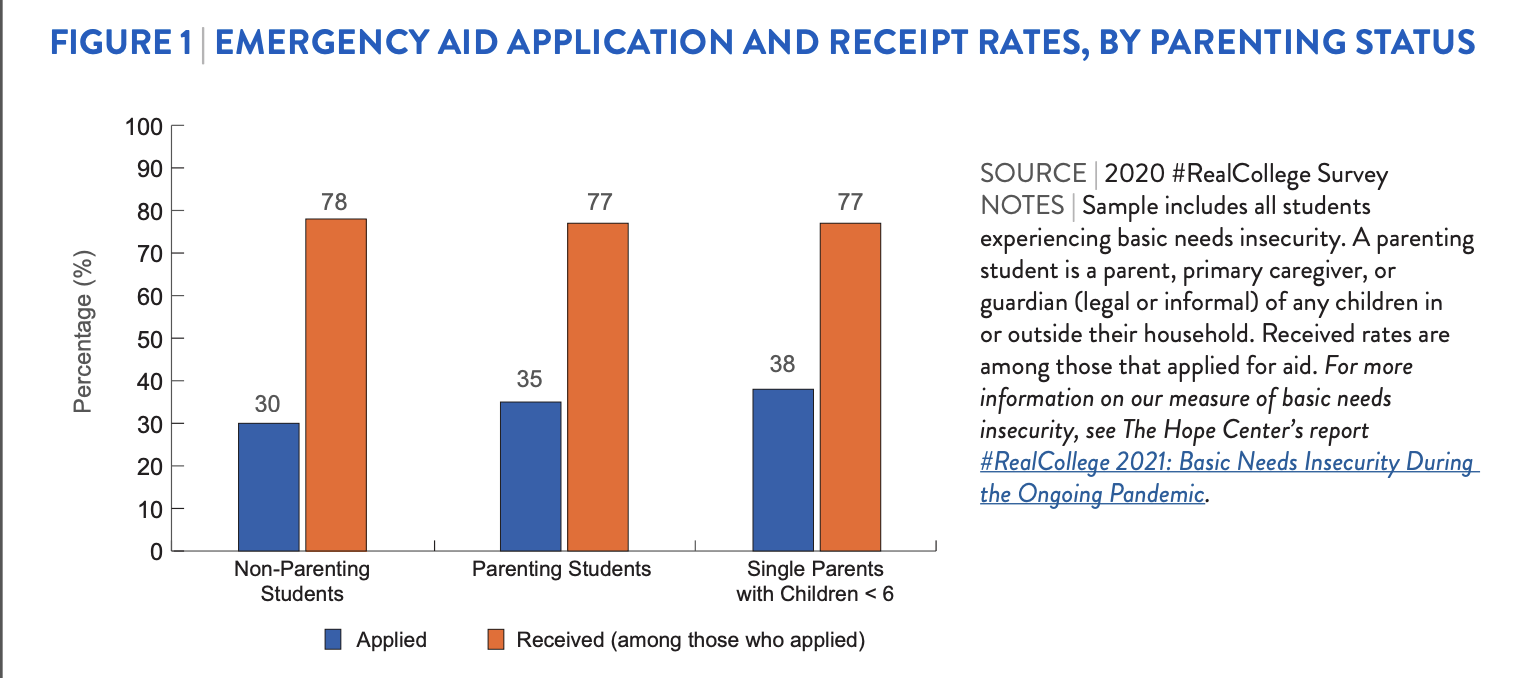Noting that access to higher education has expanded dramatically in the past several decades, Sara Goldrick-Rab and Kia Sorensen focus on how unmarried parents fare once they enter college. Contrary to the expectation that access to college consistently promotes family stability and economic security, the authors argue that deficiencies in current policy lead college attendance to have adverse consequences for some families headed by unmarried parents.
Although rates of college attendance have increased substantially among unmarried parents, their college completion rates are low. One explanation is inadequate academic preparation. Another is financial constraints, which can force unmarried students to interrupt their studies or increase their work hours, both of which compromise the quality of their educational experiences and the outcomes for their children.
The authors point out that although many public programs offer support to unmarried parents attending college, the support is neither well coordinated nor easily accessed. Over the past three decades, loans have increasingly replaced grants as the most common form of federal and state financial aid. Confusion about what is available leads many low-income students to the two most “straightforward” sources of income—loans and work, both of which involve significant costs and can operate at cross-purposes with public forms of support. Too much work can lead to reductions in public benefits, and earnings do not always replace the lost income.
A growing body of experimental evidence shows that providing social, financial, and academic supports to vulnerable community college students can improve achievement and attainment. Contextualized learning programs, for example, have enabled participants not only to move on from basic skills to credit-bearing coursework, but also to complete credits, earn certificates, and make gains on basic skills tests. Another successful initiative provided low-performing students with special counseling services and a small stipend of $150 per semester when they used those services. And researchers are conducting experimental performance-based financial aid programs at community colleges to test their effectiveness. Goldrick-Rab and Sorensen conclude that more effective support could enable unmarried students to complete college degree and certificate programs.

